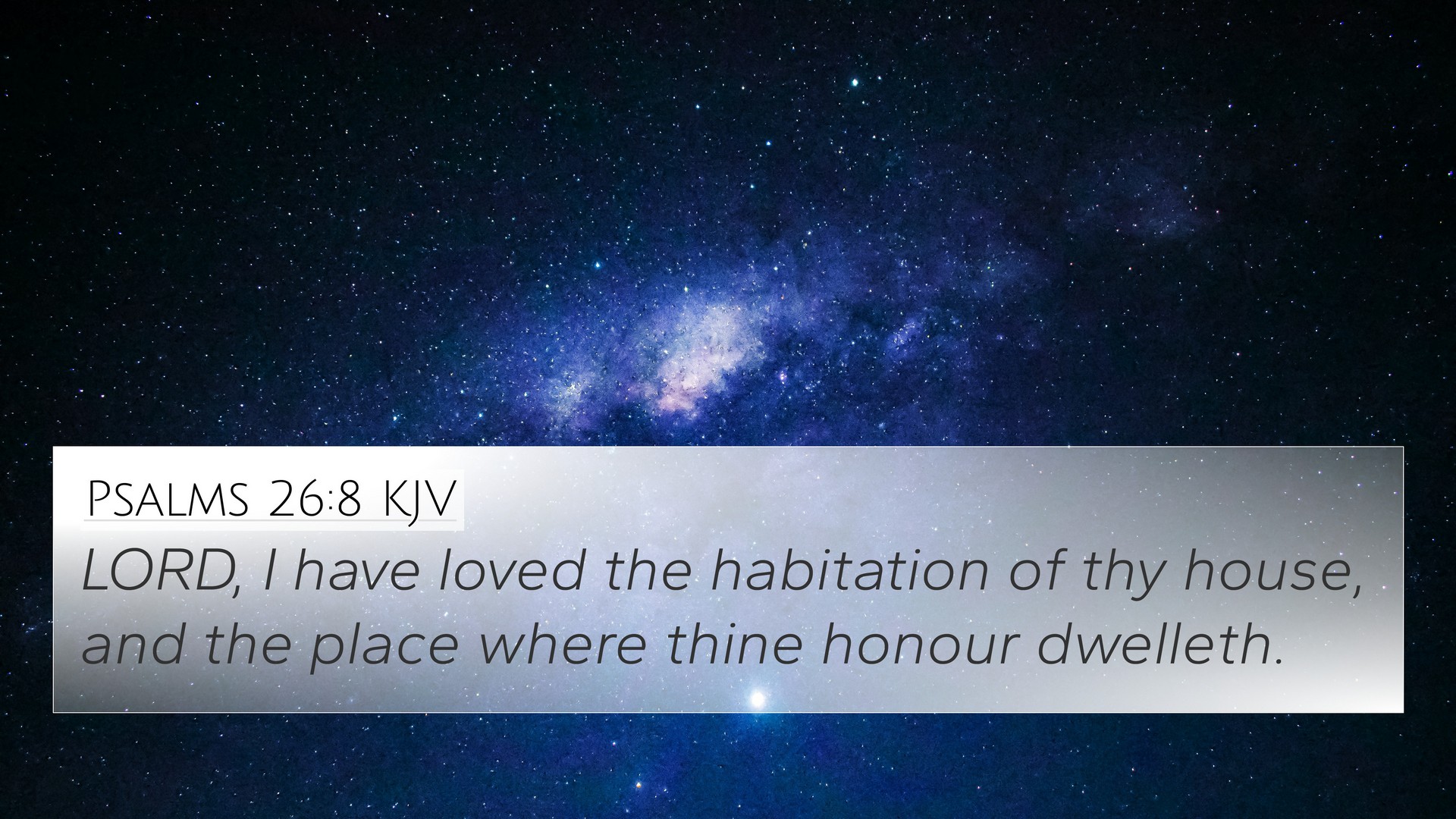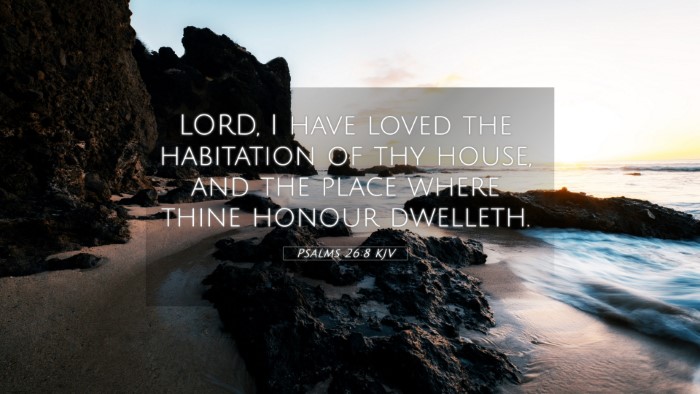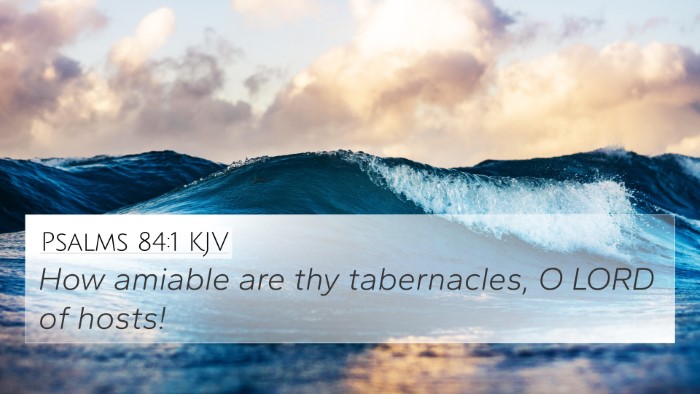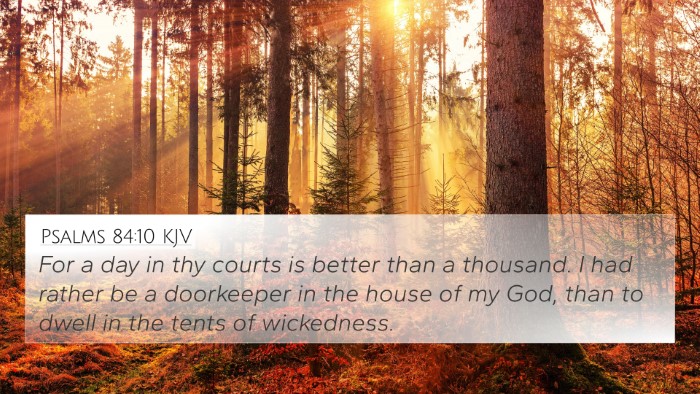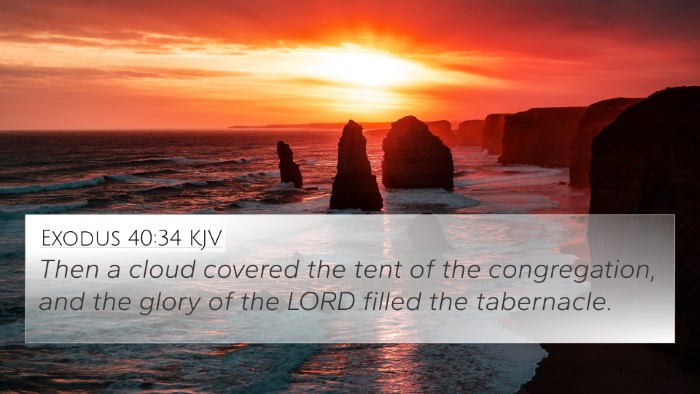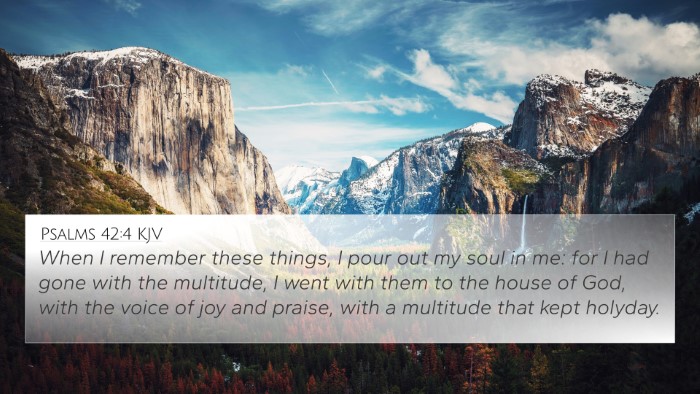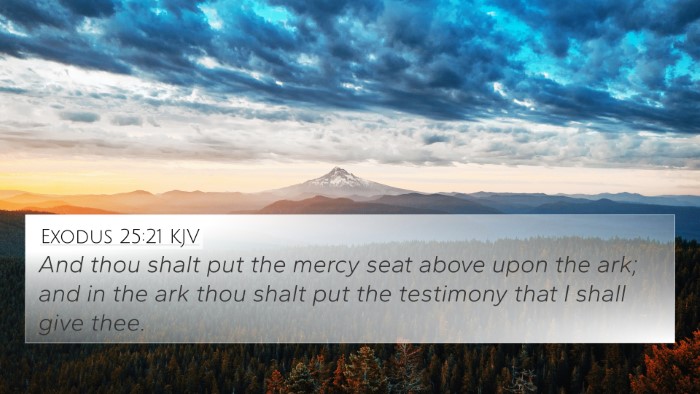Psalms 26:8 - Meaning and Interpretation
Bible Verse: "O Lord, I have loved the habitation of thy house, and the place where thine honour dwelleth." (Psalm 26:8)
This verse expresses a deep love and reverence for God's house, often understood to be the temple, where His presence dwells. The psalmist, likely David, is reflecting on the importance of worship and the sacredness of the space dedicated to God.
Summary of Insights from Public Domain Commentaries
Matthew Henry's Commentary
Matthew Henry emphasizes the psalmist's earnest affection for the dwelling of God among His people. He suggests that loving the house of God reflects a heart inclined toward worship and fellowship with God. Henry also notes that this love leads to a desire for purity and righteousness in approaching such a sacred environment.
Albert Barnes' Notes
Albert Barnes comments on the psalmist's declaration of love for God's habitation. He points out that the 'house' symbolizes a community of believers and serves as a place of divine revelation. Barnes argues that true love for God's house translates into a longing for divine presence, which brings comfort and guidance.
Adam Clarke's Commentary
Adam Clarke expands on the emotional state of the psalmist, suggesting that his love for God's house is rooted in the benefits received through worship. Clarke adds that this verse highlights a contrast with the ungodly, whose hearts are far from God and His sanctuary. The psalmist's remarks provoke self-examination about one's own relationship with God and His place of worship.
Explanation of Key Themes
- Divine Presence: The 'house' signifies more than a physical location; it is where God's glory abides, making it a focal point for worship and community.
- Worship: The love expressed for God’s house indicates the vital role of worship in the life of a believer. True devotion encompasses a longing to be in God's presence.
- Holiness: The term 'honour' emphasizes the holiness associated with God’s presence, reminding worshippers to approach Him with reverence and purity.
Bible Verse Cross-References
- Psalm 23:6: "Surely goodness and mercy shall follow me all the days of my life: and I will dwell in the house of the Lord forever."
- Psalm 84:1-4: "How amiable are thy tabernacles, O Lord of hosts!"
- John 14:2: "In my Father's house are many mansions..."—illustrating heaven as another 'house' of God.
- 1 Chronicles 29:3: The king’s affection toward God’s house demonstrates a commitment to honoring God.
- Matthew 21:12: Jesus cleansing the temple reinforces the sanctity of God’s dwelling.
- Hebrews 10:25: "Not forsaking the assembling of ourselves together, as the manner of some is..."—highlighting the importance of gathering in God’s house.
- Revelation 21:3: "Behold, the tabernacle of God is with men..."—reflecting God's eternal presence among His people.
- Psalm 122:1: "I was glad when they said unto me, Let us go into the house of the Lord."
- Isaiah 56:7: "For mine house shall be called a house of prayer..."—emphasizing the intended purpose of the dwelling.
- 2 Chronicles 7:15: "Now mine eyes shall be open, and mine ears attent unto the prayer that is made in this place."—the access to God's attention due to the sacred space.
Understanding the Importance of Cross-Referencing
The interconnections between Bible verses, like those surrounding Psalm 26:8, enhance understanding and provide a richer theological framework. They unveil thematic continuities and reveal how scriptural texts dialogue with each other, offering deeper insights into the nature of worship, holiness, and God’s abiding presence.
Tools for Bible Cross-Referencing
Utilizing tools such as Bible concordances, cross-reference guides, and Bible study software allows individuals to explore and identify connections between various scriptures, thereby deepening their understanding of biblical themes.
Conclusion
In summary, Psalms 26:8 encapsulates a heartfelt devotion to God’s house, encapsulating themes of worship, holiness, and divine fellowship. The richness of this verse is enhanced through careful study and cross-referencing with other scriptures, facilitating a comprehensive understanding of God's design for His dwelling and His people.
